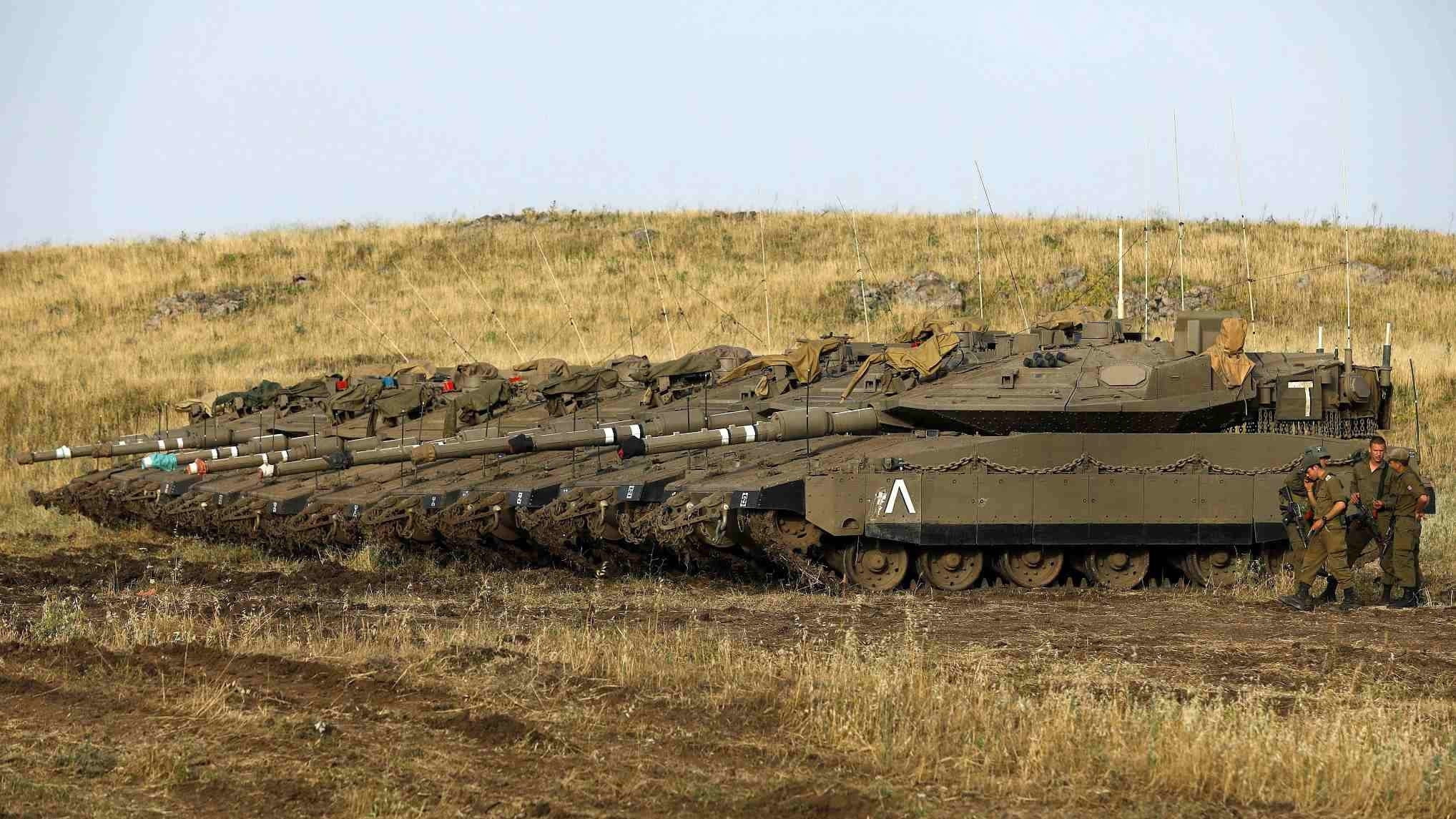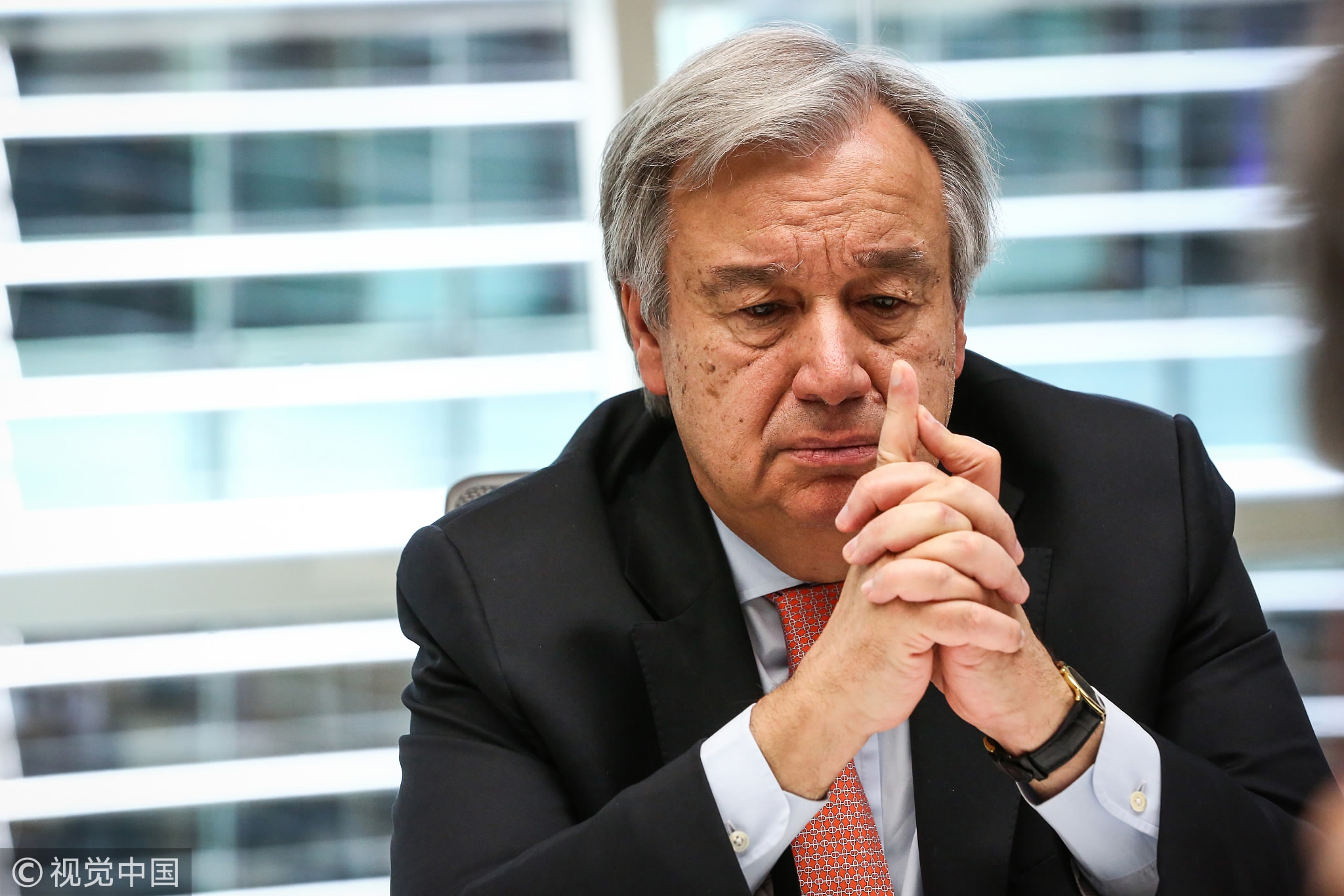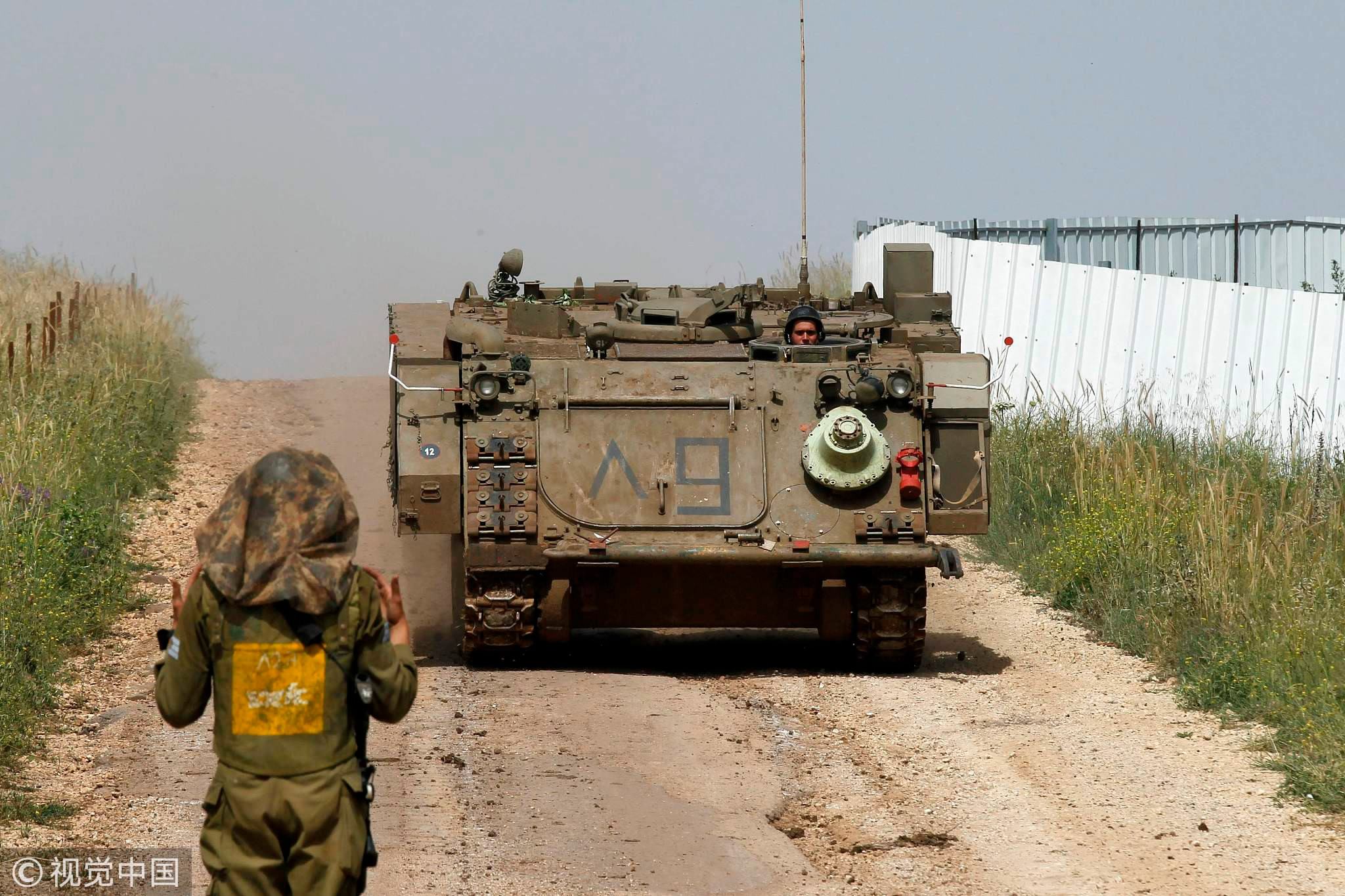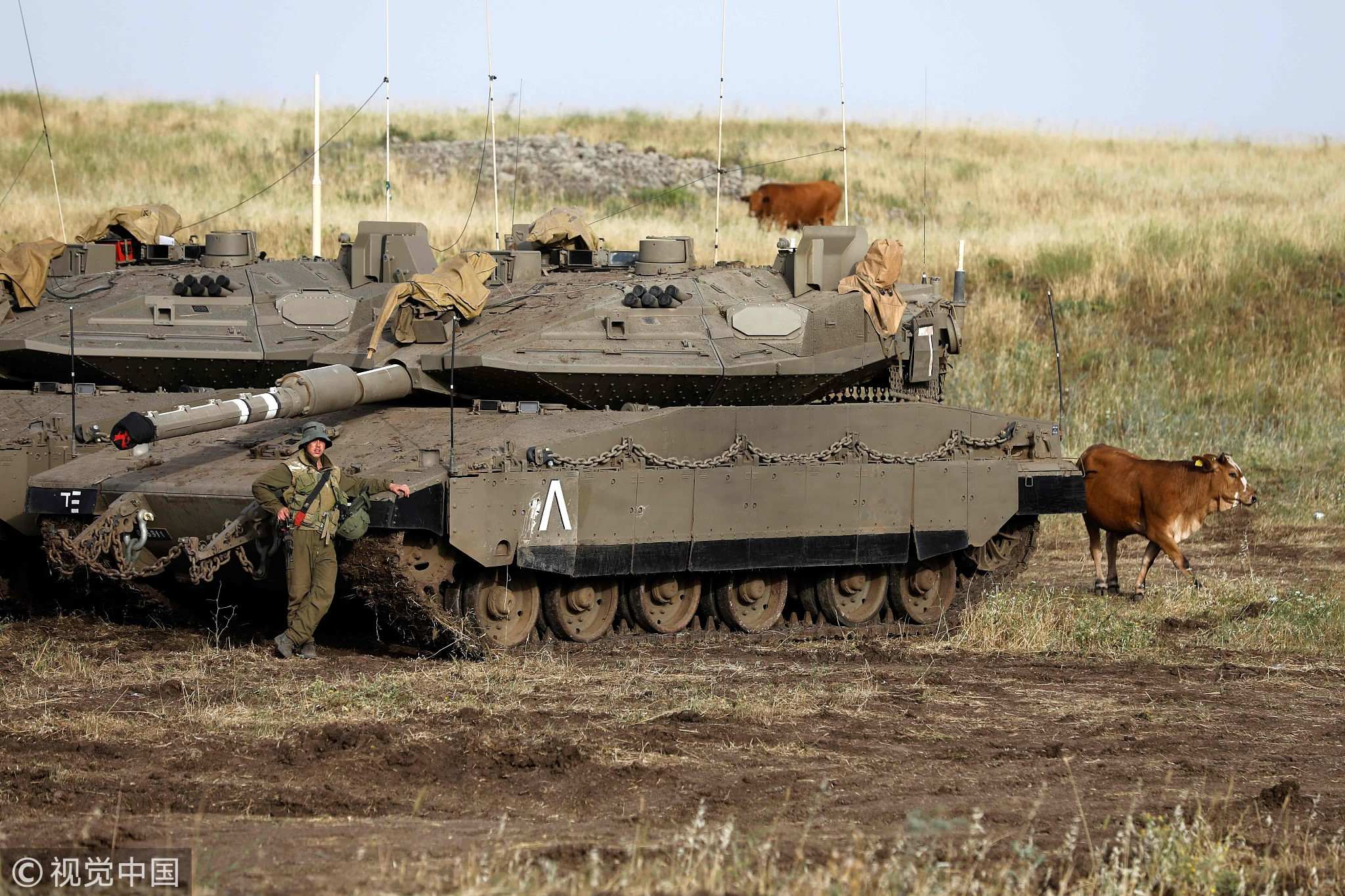
Politics
08:49, 11-May-2018
World leaders call for restraint after Israeli raids on 'Iranians' in Syria
CGTN
02:20

Israel carried out deadly, widespread raids against what it said were Iranian targets in Syria on Thursday after alleging that Iran fired rockets toward its forces, drawing global calls to avoid any further escalation.
The exchange of fire came after weeks of rising tensions and followed US President Donald Trump's decision Tuesday to withdraw from the landmark 2015 Iran nuclear deal, a move Israel had long advocated.
The bombardment led to immediate calls for restraint from the United Nations, Russia, France, Germany and Britain, while the United States put the blame squarely on Iran and stressed Israel's right to "self-defense."
UN Secretary-General Antonio Guterres called on Syria and Israel to halt all hostile acts in order to avoid "a new conflagration in the region already embroiled in terrible conflicts with immense suffering of civilians," said spokesperson Stephane Dujarric in a statement.

Antonio Guterres, secretary-general of the United Nations, listens during an interview in New York, US, May 10, 2018. /VCG Photo
Antonio Guterres, secretary-general of the United Nations, listens during an interview in New York, US, May 10, 2018. /VCG Photo
Dujarric told reporters the UN Disengagement Observer Force (UNDOF) has maintained contact with both Syria and Israel, urging them to exercise "maximum" restraint and abide by their 1974 ceasefire agreement.
"Moscow is concerned about the growing tensions and hopes that all parties will show restraint and resort exclusively to political and diplomatic means to solve all existing problems," Kremlin spokesman Dmitry Peskov told a daily briefing.
Germany and Britain joined the United States in denouncing the rocket fire they also said came from Iran, while France reiterated its "unwavering support for Israel's security."
Israeli Prime Minister Benjamin Netanyahu said Iran had "crossed a red line" and that the resulting bombardment "was a consequence."

An Israeli soldier directs a M113 armored personal vehicle near the Syrian border in the Israel-annexed Golan Heights, May 10, 2018. /VCG Photo
An Israeli soldier directs a M113 armored personal vehicle near the Syrian border in the Israel-annexed Golan Heights, May 10, 2018. /VCG Photo
Iran has made no comment about the rocket fire.
The raids, which a monitor said killed 23 fighters, were one of the largest Israeli military operations in recent years and the biggest such assault on Iranian targets, the Israeli military said.
"We hit nearly all the Iranian infrastructure in Syria," said Defense Minister Avigdor Lieberman.
"I hope we've finished this episode and everyone understood."

Merkava Mark IV tanks are deployed next to cows near the Syrian border in the Israel-annexed Golan Heights, May 10, 2018. /VCG Photo
Merkava Mark IV tanks are deployed next to cows near the Syrian border in the Israel-annexed Golan Heights, May 10, 2018. /VCG Photo
Israel carried out the raids after it said 20 rockets, either Fajr or Grad type, were fired from Syria at its forces in the occupied Golan Heights at around midnight.
It blamed Iran's Quds force, adding that Israel's anti-missile system intercepted four while the rest did not land in its territory.
There were no Israeli casualties.
If confirmed, it would be the first time Iran has sought to directly attack Israeli-controlled territory aside from an alleged attempted drone assault in February.
"We know that comes from the Al-Quds force," army spokesman Lieutenant-Colonel Jonathan Conricus said, referring to the special forces unit affiliated with Iran's elite Revolutionary Guard.
The Syrian Observatory for Human Rights monitor reported that dozens of rockets were fired from Syria towards the Israeli-occupied Golan, without saying they were fired by Iranian forces.
It said the rockets followed a "first Israeli bombardment on the town of Baath" in Quneitra province.
A senior pro-regime military source in Syria confirmed the salvo of rockets, insisting Israel had fired first.
Source(s): AFP
,Xinhua News Agency

SITEMAP
Copyright © 2018 CGTN. Beijing ICP prepared NO.16065310-3
Copyright © 2018 CGTN. Beijing ICP prepared NO.16065310-3